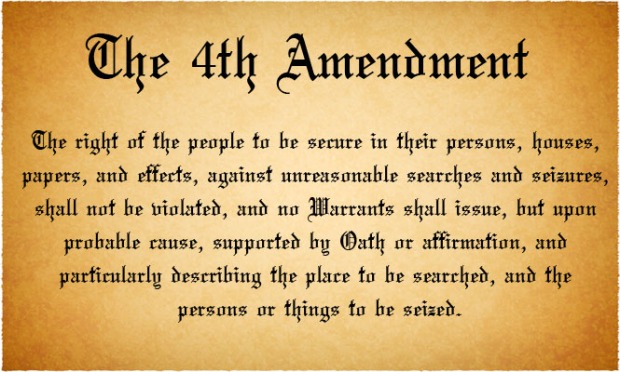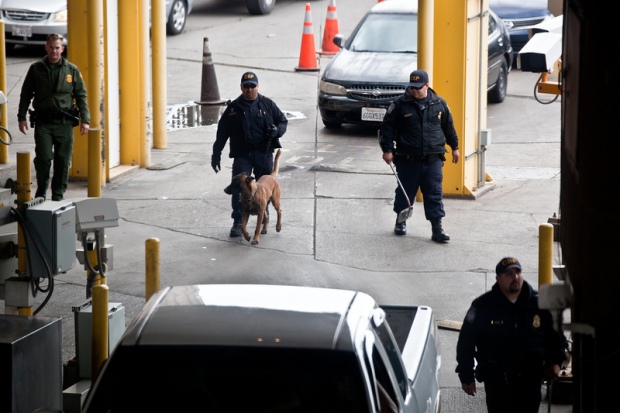First of all, this is a series of articles about border crossing and privacy. When we get 100 views on this one we will post Part II, so if you like the article be sure and share it!
If you watch an episode or two of “Cops” you will inevitably see a suspect with his shirt off yelling at the police and telling them he knows his rights! This may not be something we all do but it is something we all think we know. Most of us are wrong when it comes to the actual scenario at hand. In this instance I am referring specifically to your 4th amendment rights when you cross into the United States at the border or its equivalent (like an airport).
 You don’t have to be a smuggler to be concerned about your privacy at the border. Many ordinary vacationers and business people report being treated unfairly by the agents on a regular basis. In defense of those agents I will just say I know at a crossing known to be used by terrorists, drug mules, and human traffickers the BS coming from people gets old and I know it leads them to see just about everyone as the enemy. Somewhere along the way a balance has to be achieved.
You don’t have to be a smuggler to be concerned about your privacy at the border. Many ordinary vacationers and business people report being treated unfairly by the agents on a regular basis. In defense of those agents I will just say I know at a crossing known to be used by terrorists, drug mules, and human traffickers the BS coming from people gets old and I know it leads them to see just about everyone as the enemy. Somewhere along the way a balance has to be achieved.
To paraphrase the 4th amendment, the people should be secure in their belongings without fear of unreasonable search and seizure unless authorities get a warrant signed by a judge. Due to the abuse of this right by all sorts of criminals, and the escalation of tyranny by power hungry officials the fourth amendment is sometimes better off used as toilet paper at border crossings.
I have made multiple border crossings and entered the US from foreign countries via airplane on many occasions and have usually done so with no problems. However, I have had plenty of incidents as well. Of course I do my best to stay up to date on court cases as well as preparing myself for the worst every time. (More on preparing for the worst at a border crossing in Part II). At one of my more memorable crossing experiences, my partner and I were stopped by the agent who said the following: “So…what I’m wondering is what two white boys coming out of central Mexico are hiding” as he glared at us with a stare that demanded an answer. We were then searched extremely thoroughly. Most memorable, was how our private belongings and luggage were all gone through and laid out on a table for all to see. When the agent couldn’t find anything wrong, he simply walked away leaving us to re-pack all of our belongings that he and his partners had made a mess of.
The courts have ruled time and time again that customs agents can search based on their own training and experience as well as the totality of the circumstances. The totality of the circumstances can really come way out of left field. For example: in my case at the Mexican border, my partner and I were white and were driving up to America from about 8 hours deep into Mexico. That apparently is a red flag. The agents will always ask where you are coming from and where you are going. If you are coming from an area known for having issues or are going to an area known for issues, you can expect further scrutiny. I also know that my partner and I both had driver’s licenses from different states. That is also suspicious. The point here is that a trained officer from the border patrol added all these small unimportant details and manufactured a reason to detain us for a search. This is the totality of circumstances.
To condense my point here I will say this. The 4th amendment at this time is pretty much on suspension at all airports and within 100 miles of all US borders and ports. It is my opinion that you will probably not do yourself any good by arguing with an officer about this. Cooperation is probably the best thing you can do. However, there is one amendment that can’t be suspended or taken away ever: the 5th Amendment. When you are stopped you don’t have to be rude or argue or run or fight. Just shut your mouth and don’t give up anything you are not asked for.
As promised, I will expand on this information in part II.